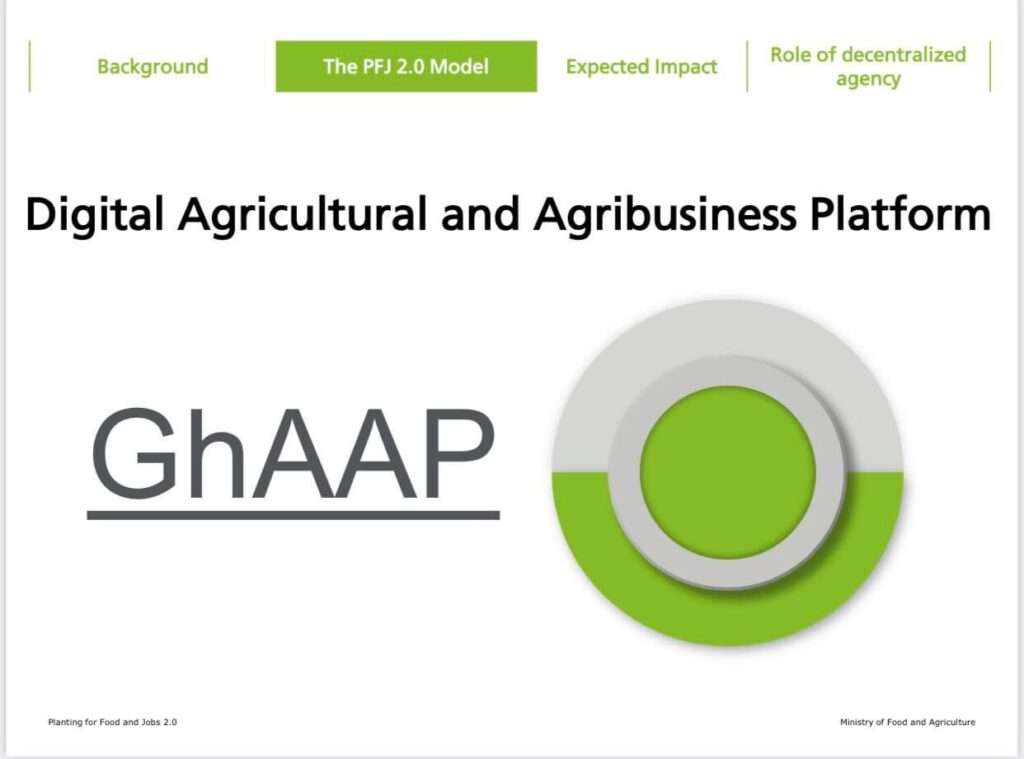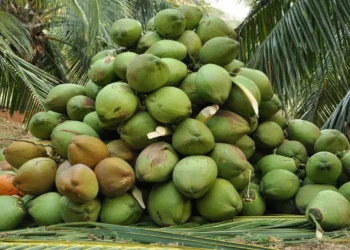The Ministry of Food and Agriculture (MoFA) in Ghana has unveiled a pioneering initiative to deliver tailored weather and climate services to farmers and stakeholders across the nation.
This initiative, which is an integral component of the Planting for Food and Jobs (PFJ) Phase II (PFJ 2.0) program, aims to empower farmers with the tools they need to make informed decisions, ultimately boosting crop yields and reducing the risks of climate-related losses.
Speaking at a validation meeting at the Ministry of Food and Agriculture, Dr. Bryan Acheampong, the Minister for Food and Agriculture, expressed his enthusiasm for the initiative.
“We are excited to launch this initiative, which will help farmers make better decisions about planting, harvesting, and pest management,” said Dr. Bryan Acheampong.
Dr. Bryan Acheampong highlighted the importance of accurate and reliable weather and climate information in reducing the risk of crop failures and enhancing productivity.
The Minister’s remarks underscore the government’s commitment to supporting the agricultural sector through innovative and data-driven approaches.
The program is a result of a collaborative effort between MoFA’s Food Security Research Program (FSRP) and the Ghana Meteorological Agency (GMet). Together, they are developing specialized products and services designed to cater to the diverse agro-ecological zones of Ghana.
This collaboration is a testament to the government’s commitment to leveraging science and technology to bolster the agricultural sector, which is vital to the country’s economy and food supply.
The customized weather and climate services provided through this initiative are meticulously designed to address the unique needs of different agro-ecological zones in Ghana. These zones, which vary in climate, soil type, and farming practices, require specific weather forecasts and climate information to optimize agricultural activities.
One of the key features of the program is the development of regional crop calendars for key staples such as maize, rice, sorghum, and soybeans. These calendars will offer farmers precise timelines for planting and harvesting, aligned with the climatic conditions of their specific regions.
Additionally, generic broiler production calendars will be made available, supporting the poultry industry with vital information on optimal production cycles.
The initiative is designed to have a broad impact, covering all 261 districts and 16 regions of Ghana. Customized agricultural climate and weather products, accompanied by corresponding advisories, will be provided to farmers in each district and region.
These products will include detailed forecasts and recommendations, tailored to the specific needs of the local agricultural practices. The localized nature of the services ensures that farmers in even the most remote areas will have access to vital information that can help them mitigate risks and improve their agricultural productivity.
Advanced Technology for Real-Time Access

The implementation of this initiative is supported by advanced technology, ensuring that farmers can access the information they need in real-time. The customized climate and weather products will be transmitted through GMet’s Management Information System (MIS) platform via an API to the Ghana Agriculture and Agribusiness Platform (GhAAP) portal.
This seamless integration of technology will allow farmers to retrieve the information in various formats, including word documents, PDFs, CSV files, JPEGs, and APIs, making it accessible to a wide range of users with different technological capabilities.
Dr. Eric Asuman, the Executive Director of GMet, emphasized the importance of this initiative in the context of Ghana’s broader goals.
“This initiative aligns with Ghana’s goal of sustainable agriculture and food security, which is a key component of the Sustainable Development Goals (SDGs). We are committed to providing accurate and reliable weather and climate information to support Ghana’s agricultural sector.”
Dr. Eric Asuman, the Executive Director of GMet
Dr. Asuman indicated that the introduction of customized weather and climate services represents a major advancement in Ghana’s efforts to enhance agricultural productivity and food security. By equipping farmers with precise and timely information, the initiative is expected to lead to significant improvements in crop yields, reduce the incidence of crop failures, and increase the overall efficiency of agricultural operations.
Furthermore, the initiative is poised to support Ghana in its pursuit of the Sustainable Development Goals, particularly SDG 13 on Climate Action. By enabling farmers to adapt to and mitigate the impacts of climate change, the program will help build a more resilient agricultural sector that can sustain the livelihoods of millions of Ghanaians.
READ ALSO: King Paluta Addresses KOKA’s Criticisms of His Vocals





















